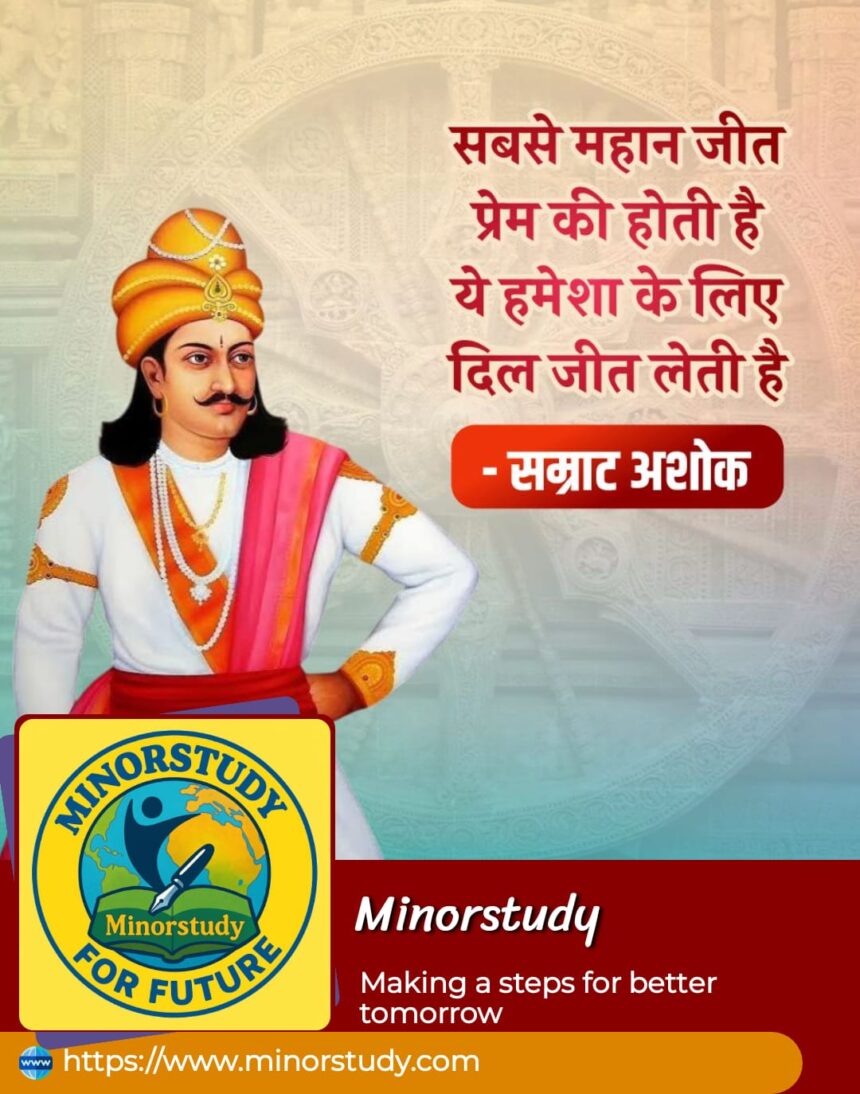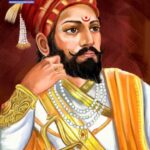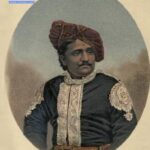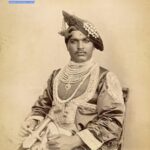🏛️ All About Emperor Ashoka – From Ruthless Conqueror to Enlightened Ruler
Emperor Ashoka, one of India’s greatest historical figures, remains a timeless icon of transformation, governance, and non-violence. He wasn’t born great—he became great through a profound personal evolution, which turned an ambitious warrior into a compassionate dharma king.
Ashoka’s story isn’t just a page in Indian history; it’s a blueprint for leadership, change, and human values. In this article, you’ll find everything about Ashoka’s life—his history, facts, significance, timeline, FAQs, legacy, and how his example still impacts our modern lives.
🕰️ History of Emperor Ashoka: From Chand Ashoka to Dharma Ashoka
Ashoka was born in 304 BCE into the Maurya dynasty, the son of Emperor Bindusara and the grandson of Chandragupta Maurya, founder of the Mauryan Empire. Though not the crown prince initially, Ashoka showed early signs of brilliance in administration and warfare.
👑 Rise to Power
After his father’s death, Ashoka ascended the throne around 268 BCE, after reportedly battling his brothers in a fierce succession conflict. He established himself as a powerful and sometimes ruthless ruler, expanding the empire with an iron fist.
💔 Turning Point – The Kalinga War (261 BCE)
The Kalinga War marked a profound transformation in Ashoka’s life. Though victorious, the massive bloodshed—over 100,000 deaths and countless injuries—left Ashoka shaken. Witnessing the pain he had caused, he renounced violence forever.
📌 9 Fascinating Facts About Emperor Ashoka
-
🛕 Ashoka embraced Buddhism after the Kalinga War and became its most devoted promoter.
-
🪨 He installed over 50 rock edicts and pillar inscriptions across the Indian subcontinent.
-
🕊️ Ashoka sent Buddhist missions to Sri Lanka, Egypt, Greece, and beyond.
-
🌍 His empire stretched from Afghanistan to Bengal and from Kashmir to Kerala.
-
📜 The Ashoka Chakra in India’s national flag symbolizes dharma and eternal progress.
-
🚫 He banned animal sacrifices and unnecessary slaughter in his empire.
-
📖 The Ashokavadana and Divyavadana are Buddhist texts that document his life.
-
🛡️ The 14 Major Rock Edicts include messages of morality, tolerance, and compassion.
-
🏛️ The Lion Capital of Ashoka at Sarnath is the national emblem of India.
🗓️ Timeline of Ashoka’s Life and Legacy
| Year (BCE) | Event |
|---|---|
| 304 | Birth of Ashoka in Pataliputra (modern-day Patna) |
| ~268 | Ashoka becomes Emperor of the Mauryan Empire |
| 261 | Kalinga War and his transformation begins |
| 260–250 | Spreads Buddhism through rock edicts and missionary work |
| 250 | Third Buddhist Council held under his patronage |
| ~232 | Death of Ashoka, possibly at Patna |
📖 Significance of Emperor Ashoka in Indian and World History
Ashoka’s greatness is not in his conquests, but in his transformation. Here’s why he continues to matter:
1. The First Welfare State
Ashoka pioneered public healthcare, animal welfare, and social support systems—centuries before modern democracies.
2. Spiritual Diplomacy
He practiced diplomacy over war, sending monks and messages instead of armies. This helped Buddhism spread peacefully across Asia.
3. Secular Governance
Despite his Buddhist beliefs, Ashoka supported religious tolerance, allowing Jainism, Brahmanism, and other traditions to thrive.
4. Ethical Leadership
His concept of Dhamma (righteousness) emphasized truth, compassion, and moral living—principles modern leaders strive for.
❓ Frequently Asked Questions (FAQs)
Q1: Was Ashoka always a peaceful king?
No. He began as a powerful and aggressive ruler. His change came after the Kalinga War.
Q2: What is Dhamma according to Ashoka?
Dhamma is Ashoka’s code of ethics based on non-violence, kindness, justice, and compassion.
Q3: Did Ashoka abandon administration after becoming a Buddhist?
No. He continued ruling but made his policies kinder and more people-centric.
Q4: Where are Ashoka’s inscriptions found?
In India, Nepal, Pakistan, and Afghanistan—etched on pillars, rocks, and caves.
Q5: What is Ashoka’s influence on modern India?
Ashoka’s chakra, lion capital, and values shape India’s national identity, flag, and ethics.
🙏 Wishing Messages to Celebrate Ashoka’s Legacy
-
“May we lead like Ashoka—bold in leadership, humble in heart.”
-
“On this day, let’s remember a king who turned pain into peace and power into purpose.”
-
“Ashoka’s life reminds us that transformation is possible—even for the mightiest.”
-
“Follow the path of Dhamma. Be kind, just, and fearless.”
-
“From Kalinga to kindness, let us walk the journey of Ashoka in our own lives.”
🌟 Why Emperor Ashoka Is Important in Our Lives
Ashoka’s story reflects real human growth. Many leaders today could learn from his shift—from ego to empathy, from expansion to introspection.
In Our Personal Lives:
-
He teaches us the value of self-reflection and redemption.
-
We learn that change is always possible, no matter how far we’ve strayed.
-
His story urges us to live ethically, help others, and be accountable.
In Society:
-
Ashoka’s model of compassionate leadership is needed more than ever.
-
His secularism fosters peaceful coexistence in diverse communities.
-
His respect for nature and life encourages sustainable living.
💥 Important Points at a Glance
✅ Ashoka ruled one of the largest empires in Indian history.
✅ Transformed from a ruthless conqueror to a messenger of peace.
✅ Spread Buddhism across three continents.
✅ Promoted human rights, tolerance, and animal welfare.
✅ Embodied spirituality, courage, and humility.
❤️ Daily Life Impacts of Ashoka’s Teachings
-
Practice empathy: Whether in work or family, understand others before judging.
-
Choose peace: Resolve conflicts with dialogue, not dominance.
-
Live ethically: Be honest, respectful, and mindful in daily choices.
-
Support others: Like Ashoka, uplift the weak and speak for the voiceless.
-
Educate and reflect: Never stop learning, growing, and evolving.
🏁 Conclusion – Why Ashoka Still Reigns in Our Hearts
In a world obsessed with power and profit, Emperor Ashoka is a shining exception. He reminds us that true greatness comes not from conquest, but from compassion.
His journey—from bloodshed to Buddhism—proves that the human heart is capable of immense change. Whether you’re a student, leader, activist, or ordinary citizen, there’s something deeply personal and inspiring in his story.
Let’s honor Ashoka by living his values, spreading wisdom, and being the change we wish to see.
“The real power of a king is not in how much land he conquers, but how many lives he transforms.” – Inspired by Ashoka








